Elia Suleiman
출생 : 1960-07-28, Nazareth, Israel
약력
Elia Suleiman - (Arabic: إيليا سليمان); born July 28, 1960 in Nazareth, Israel; is a Palestinian film director.
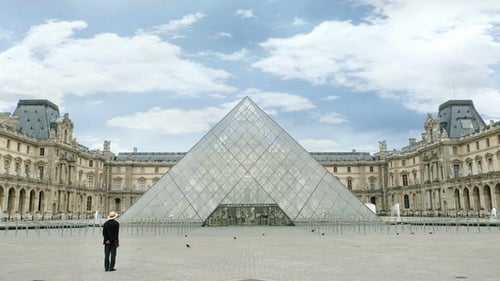
Producer
팔레스타인을 떠나 제2의 터전을 찾고 싶었던 일리야 술레이만 감독은 자신을 따라다니는 팔레스타인이라는 꼬리표를 떼어버릴 수 없음을 알게 된다. 새로운 삶을 향한 그의 열망은 이 영화에서 실패를 자조하는 희극으로 전환된다. 술레이만 감독은 파리, 뉴욕 등 세계 대도시를 다니며 제작자들에게 서툴게 자신의 ‘팔레스타인’ 영화를 설명하고 무표정한 얼굴로 거리를 응시하는 자신의 페르소나를 연기한다. 영화 속 술레이만은 팔레스타인 사람이면서 극중 인물의 말처럼 ‘충분히 팔레스타인 사람 같지 않은’ 존재로 어느 곳에도 섞이지 못한다. 감독은 어눌해 보이기도 하고 현자 같기도 한 또 다른 술레이만의 눈을 통해 세상과 팔레스타인의 현재 모습을 풍자적으로 보여준다.

Writer
팔레스타인을 떠나 제2의 터전을 찾고 싶었던 일리야 술레이만 감독은 자신을 따라다니는 팔레스타인이라는 꼬리표를 떼어버릴 수 없음을 알게 된다. 새로운 삶을 향한 그의 열망은 이 영화에서 실패를 자조하는 희극으로 전환된다. 술레이만 감독은 파리, 뉴욕 등 세계 대도시를 다니며 제작자들에게 서툴게 자신의 ‘팔레스타인’ 영화를 설명하고 무표정한 얼굴로 거리를 응시하는 자신의 페르소나를 연기한다. 영화 속 술레이만은 팔레스타인 사람이면서 극중 인물의 말처럼 ‘충분히 팔레스타인 사람 같지 않은’ 존재로 어느 곳에도 섞이지 못한다. 감독은 어눌해 보이기도 하고 현자 같기도 한 또 다른 술레이만의 눈을 통해 세상과 팔레스타인의 현재 모습을 풍자적으로 보여준다.

Director
팔레스타인을 떠나 제2의 터전을 찾고 싶었던 일리야 술레이만 감독은 자신을 따라다니는 팔레스타인이라는 꼬리표를 떼어버릴 수 없음을 알게 된다. 새로운 삶을 향한 그의 열망은 이 영화에서 실패를 자조하는 희극으로 전환된다. 술레이만 감독은 파리, 뉴욕 등 세계 대도시를 다니며 제작자들에게 서툴게 자신의 ‘팔레스타인’ 영화를 설명하고 무표정한 얼굴로 거리를 응시하는 자신의 페르소나를 연기한다. 영화 속 술레이만은 팔레스타인 사람이면서 극중 인물의 말처럼 ‘충분히 팔레스타인 사람 같지 않은’ 존재로 어느 곳에도 섞이지 못한다. 감독은 어눌해 보이기도 하고 현자 같기도 한 또 다른 술레이만의 눈을 통해 세상과 팔레스타인의 현재 모습을 풍자적으로 보여준다.

E.S.
팔레스타인을 떠나 제2의 터전을 찾고 싶었던 일리야 술레이만 감독은 자신을 따라다니는 팔레스타인이라는 꼬리표를 떼어버릴 수 없음을 알게 된다. 새로운 삶을 향한 그의 열망은 이 영화에서 실패를 자조하는 희극으로 전환된다. 술레이만 감독은 파리, 뉴욕 등 세계 대도시를 다니며 제작자들에게 서툴게 자신의 ‘팔레스타인’ 영화를 설명하고 무표정한 얼굴로 거리를 응시하는 자신의 페르소나를 연기한다. 영화 속 술레이만은 팔레스타인 사람이면서 극중 인물의 말처럼 ‘충분히 팔레스타인 사람 같지 않은’ 존재로 어느 곳에도 섞이지 못한다. 감독은 어눌해 보이기도 하고 현자 같기도 한 또 다른 술레이만의 눈을 통해 세상과 팔레스타인의 현재 모습을 풍자적으로 보여준다.

Self
Khalo Matabane spent two years making the film, interviewing those who knew and loved Mandela, and also those who criticised him. Global thinkers, politicians and artists including the Dalai Lama, Henry Kissinger and Ariel Dorfman talk about the effect of his policies and his decision making. Their thoughts are weighed equally with ordinary South Africans like Charity Kondile, who refuses to forgive her son's apartheid operative murderer. Through these interviews, completed in the last months of Mandela's life, Matabane interrogates for himself the meaning of freedom, reconciliation and forgiveness. By doing so he challenges Mandela's enduring impact in today's world of conflict and inequality. Thought-provoking and reflective, Mandela, the Myth and Me is a moving film which frames Mandela from a fresh, deeply personal perspective. (Storyville)

Self
At the 60th anniversary of Cannes Film Festival, 34 famous directors are followed by camera.
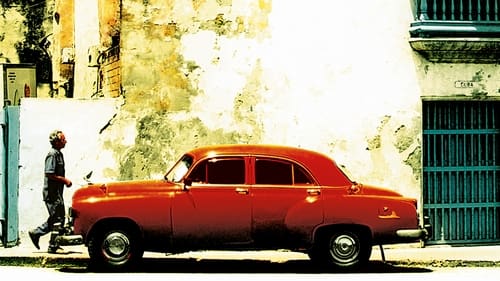
E.S. (segment "Diary of a Beginner")
A young American boy is trying to break into the acting business, and goes to Cuba during a film festival.

Director
A young American boy is trying to break into the acting business, and goes to Cuba during a film festival.

Self
A film director, an actor, a musician, an organizer of festivals, a husband, a father, a grand-father, a friend, a professor... This film is an unexpected meeting with one of the most fascinating European film directors: Emir Kusturica. This is a journey to memory and forgetfulness. Beyond success, money, dependencies and pride. A deeper look into the world of Kusturica and his Wooden city at Mokra Gora. A tale about the won battles, as well as the lost ones. About the everlasting curiosity in filmmaking.
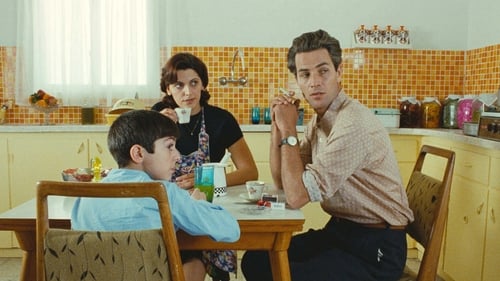
Producer
An examination of the creation of the state of Israel in 1948 through to the present day. A semi-biographic film, in four chapters, about a family spanning from 1948 until recent times. Combined with intimate memories of each member, the film attempts to portray the daily life of those Palestinians who remained in their land and were labelled "Israeli-Arabs," living as a minority in their own homeland.

Writer
An examination of the creation of the state of Israel in 1948 through to the present day. A semi-biographic film, in four chapters, about a family spanning from 1948 until recent times. Combined with intimate memories of each member, the film attempts to portray the daily life of those Palestinians who remained in their land and were labelled "Israeli-Arabs," living as a minority in their own homeland.

E.S.
An examination of the creation of the state of Israel in 1948 through to the present day. A semi-biographic film, in four chapters, about a family spanning from 1948 until recent times. Combined with intimate memories of each member, the film attempts to portray the daily life of those Palestinians who remained in their land and were labelled "Israeli-Arabs," living as a minority in their own homeland.

Director
An examination of the creation of the state of Israel in 1948 through to the present day. A semi-biographic film, in four chapters, about a family spanning from 1948 until recent times. Combined with intimate memories of each member, the film attempts to portray the daily life of those Palestinians who remained in their land and were labelled "Israeli-Arabs," living as a minority in their own homeland.
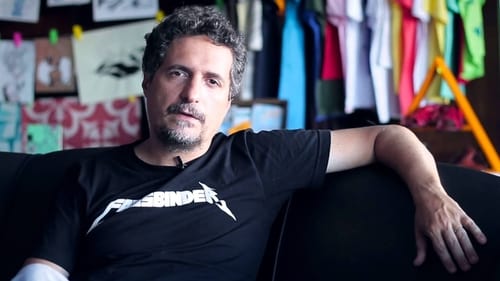
Self
Seventy critics and filmmakers discuss cinema around the conflict between the artist and the observer, the creator and the critic. Between 1998 and 2007, Kléber Mendonça Filho recorded testimonies about this relationship in Brazil, the United States and Europe, based on his experience as a critic.
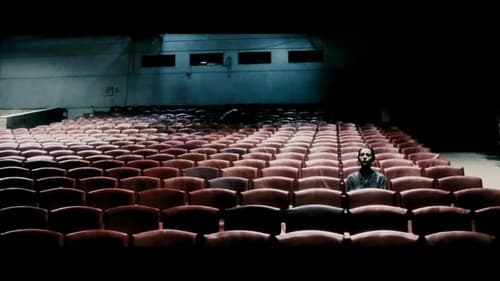
The filmmaker (segment "Irtebak")
칸영화제 60주년을 기념하여 조직위원장 질 자콥이 직접 제작과 편집을 맡고, ‘영화관(館)’ 하면 떠오르는 느낌을 주제로 역대 황금종려상 수상 감독 35명이 3분짜리 스케치 33편을 찍어 완성된 영화. 거장들의 개성 넘치는 작품 속에 그들만의 영화관(觀)이 엿보인다.

Director
칸영화제 60주년을 기념하여 조직위원장 질 자콥이 직접 제작과 편집을 맡고, ‘영화관(館)’ 하면 떠오르는 느낌을 주제로 역대 황금종려상 수상 감독 35명이 3분짜리 스케치 33편을 찍어 완성된 영화. 거장들의 개성 넘치는 작품 속에 그들만의 영화관(觀)이 엿보인다.

A Palestinian director is uncomfortable at a film festival.

Director
A Palestinian director is uncomfortable at a film festival.

Cow-boy
Caught in the stranglehold of debt and structural adjustment, Africa is fighting for its survival. In the face of disaster, representatives of African society bring an action against international financial institutions. The trial takes place in Bamako, in the yard of a house, among its inhabitants.
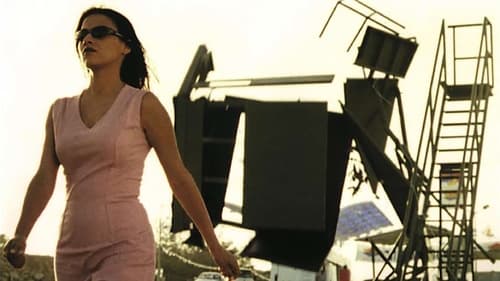
Co-Producer
Santa Claus tries to outrun a gang of knife-wielding youth. It's one of several vignettes of Palestinian life in Israel - in a neighborhood in Nazareth and at Al-Ram checkpoint in East Jerusalem. Most of the stories are droll, some absurd, one is mythic and fanciful; few words are spoken. A man who goes through his mail methodically each morning has a heart attack. His son visits him in hospital. The son regularly meets a woman at Al-Ram; they sit in a car, hands caressing. Once, she defies Israeli guards at the checkpoint; later, Ninja-like, she takes on soldiers at a target range. A red balloon floats free overhead. Neighbors toss garbage over walls. Life goes on until it doesn't.

Writer
Santa Claus tries to outrun a gang of knife-wielding youth. It's one of several vignettes of Palestinian life in Israel - in a neighborhood in Nazareth and at Al-Ram checkpoint in East Jerusalem. Most of the stories are droll, some absurd, one is mythic and fanciful; few words are spoken. A man who goes through his mail methodically each morning has a heart attack. His son visits him in hospital. The son regularly meets a woman at Al-Ram; they sit in a car, hands caressing. Once, she defies Israeli guards at the checkpoint; later, Ninja-like, she takes on soldiers at a target range. A red balloon floats free overhead. Neighbors toss garbage over walls. Life goes on until it doesn't.

E.S.
Santa Claus tries to outrun a gang of knife-wielding youth. It's one of several vignettes of Palestinian life in Israel - in a neighborhood in Nazareth and at Al-Ram checkpoint in East Jerusalem. Most of the stories are droll, some absurd, one is mythic and fanciful; few words are spoken. A man who goes through his mail methodically each morning has a heart attack. His son visits him in hospital. The son regularly meets a woman at Al-Ram; they sit in a car, hands caressing. Once, she defies Israeli guards at the checkpoint; later, Ninja-like, she takes on soldiers at a target range. A red balloon floats free overhead. Neighbors toss garbage over walls. Life goes on until it doesn't.

Director
Santa Claus tries to outrun a gang of knife-wielding youth. It's one of several vignettes of Palestinian life in Israel - in a neighborhood in Nazareth and at Al-Ram checkpoint in East Jerusalem. Most of the stories are droll, some absurd, one is mythic and fanciful; few words are spoken. A man who goes through his mail methodically each morning has a heart attack. His son visits him in hospital. The son regularly meets a woman at Al-Ram; they sit in a car, hands caressing. Once, she defies Israeli guards at the checkpoint; later, Ninja-like, she takes on soldiers at a target range. A red balloon floats free overhead. Neighbors toss garbage over walls. Life goes on until it doesn't.

Writer
Cyber Palestine is a parable about a modern-day Mary and Joseph, two Palestinian returnees living in Gaza, and their tribulations with the Israeli occupation. Cyber Palestine was commissioned by the Palestinian National Authority's Bethlehem 2000 Project as part of the millennium commemorations in Bethlehem.

Director
Cyber Palestine is a parable about a modern-day Mary and Joseph, two Palestinian returnees living in Gaza, and their tribulations with the Israeli occupation. Cyber Palestine was commissioned by the Palestinian National Authority's Bethlehem 2000 Project as part of the millennium commemorations in Bethlehem.

Cinematography
In this autobiographical film the Palestinian filmmaker Elia Suleiman goes in search of his past and possible future in occupied Palestine. Wherever he looks, he feels surrounded by images and places that have a political significance. Can a landscape be free of meaning, is there any point in striving for an approach that transcends all ideology? Commissioned by the ARTE network as part of a series of films for the end of the millennium, this film is a travelogue through Jerusalem, Nazareth and Ramallah. The film is a meditation on quotidian injustices, and a formulation of an aesthetic and creative response to them.

Himself
In this autobiographical film the Palestinian filmmaker Elia Suleiman goes in search of his past and possible future in occupied Palestine. Wherever he looks, he feels surrounded by images and places that have a political significance. Can a landscape be free of meaning, is there any point in striving for an approach that transcends all ideology? Commissioned by the ARTE network as part of a series of films for the end of the millennium, this film is a travelogue through Jerusalem, Nazareth and Ramallah. The film is a meditation on quotidian injustices, and a formulation of an aesthetic and creative response to them.

Writer
In this autobiographical film the Palestinian filmmaker Elia Suleiman goes in search of his past and possible future in occupied Palestine. Wherever he looks, he feels surrounded by images and places that have a political significance. Can a landscape be free of meaning, is there any point in striving for an approach that transcends all ideology? Commissioned by the ARTE network as part of a series of films for the end of the millennium, this film is a travelogue through Jerusalem, Nazareth and Ramallah. The film is a meditation on quotidian injustices, and a formulation of an aesthetic and creative response to them.

Director
In this autobiographical film the Palestinian filmmaker Elia Suleiman goes in search of his past and possible future in occupied Palestine. Wherever he looks, he feels surrounded by images and places that have a political significance. Can a landscape be free of meaning, is there any point in striving for an approach that transcends all ideology? Commissioned by the ARTE network as part of a series of films for the end of the millennium, this film is a travelogue through Jerusalem, Nazareth and Ramallah. The film is a meditation on quotidian injustices, and a formulation of an aesthetic and creative response to them.

Director
In the train on the way to the Festival in Vesoul, filmmakers Amos Gitai and Elia Suleiman talk about the subjects that preoccupy them: war and peace in the Middle East, their film projects, their cities, their private lives… In Vesoul, the French welcome is rather comical and the questions of war and peace in the Middle East create misunderstandings: through a kind of inverted exoticism, we end up wondering who is really the “stranger” in this story.

Producer
Chronicle of a Disappearance unfolds in a series of seemingly unconnected cinematic tableaux, each of them focused on incidents or characters which seldom reappear later in the film. Among the many unrelated scenes, there is a Palestinian actress struggling to find an apartment in West Jerusalem, the owner of the Holy Land souvenir shop preparing merchandise for incoming Japanese tourists, a group of old women gossiping about their relatives, and an Israeli police van which screeches to a halt so several heavily armed soldiers can get off the car and urinate.

E.S.
Chronicle of a Disappearance unfolds in a series of seemingly unconnected cinematic tableaux, each of them focused on incidents or characters which seldom reappear later in the film. Among the many unrelated scenes, there is a Palestinian actress struggling to find an apartment in West Jerusalem, the owner of the Holy Land souvenir shop preparing merchandise for incoming Japanese tourists, a group of old women gossiping about their relatives, and an Israeli police van which screeches to a halt so several heavily armed soldiers can get off the car and urinate.

Writer
Chronicle of a Disappearance unfolds in a series of seemingly unconnected cinematic tableaux, each of them focused on incidents or characters which seldom reappear later in the film. Among the many unrelated scenes, there is a Palestinian actress struggling to find an apartment in West Jerusalem, the owner of the Holy Land souvenir shop preparing merchandise for incoming Japanese tourists, a group of old women gossiping about their relatives, and an Israeli police van which screeches to a halt so several heavily armed soldiers can get off the car and urinate.

Director
Chronicle of a Disappearance unfolds in a series of seemingly unconnected cinematic tableaux, each of them focused on incidents or characters which seldom reappear later in the film. Among the many unrelated scenes, there is a Palestinian actress struggling to find an apartment in West Jerusalem, the owner of the Holy Land souvenir shop preparing merchandise for incoming Japanese tourists, a group of old women gossiping about their relatives, and an Israeli police van which screeches to a halt so several heavily armed soldiers can get off the car and urinate.

The second Gulf War from 1990 to 1991 represents in the collective Arab memory a turning point in regards to the Arab nationalism’s self-perception as well as a moment of deep historical and existential insecurity. Five Arab directors discuss the events from their personal perspective.

Writer
The second Gulf War from 1990 to 1991 represents in the collective Arab memory a turning point in regards to the Arab nationalism’s self-perception as well as a moment of deep historical and existential insecurity. Five Arab directors discuss the events from their personal perspective.

Director
The second Gulf War from 1990 to 1991 represents in the collective Arab memory a turning point in regards to the Arab nationalism’s self-perception as well as a moment of deep historical and existential insecurity. Five Arab directors discuss the events from their personal perspective.

Writer
A Palestinian filmmaker is writing a script in his New York apartment during the first Gulf war. As much as he tries to shut himself off from the exterior world, images of past wars in the Middle East come back to haunt him.

Producer
A Palestinian filmmaker is writing a script in his New York apartment during the first Gulf war. As much as he tries to shut himself off from the exterior world, images of past wars in the Middle East come back to haunt him.

Director
A Palestinian filmmaker is writing a script in his New York apartment during the first Gulf war. As much as he tries to shut himself off from the exterior world, images of past wars in the Middle East come back to haunt him.

E.S.
A Palestinian filmmaker is writing a script in his New York apartment during the first Gulf war. As much as he tries to shut himself off from the exterior world, images of past wars in the Middle East come back to haunt him.

Director
This highly kinetic tableaux of uprooted sights and sounds works most earnestly to expose the racial biases concealed in familiar images. Relying on valuable snippets from feature films such as "Exodus", "Lawrence of Arabia", "Black Sunday", "Little Drummer Girl", and network news shows, the filmmakers have constructed an oddly wry narrative, mimicking the history of Mid East politics.






































